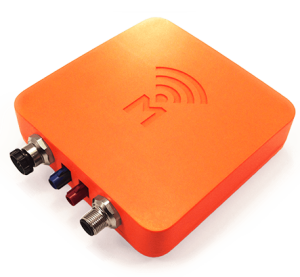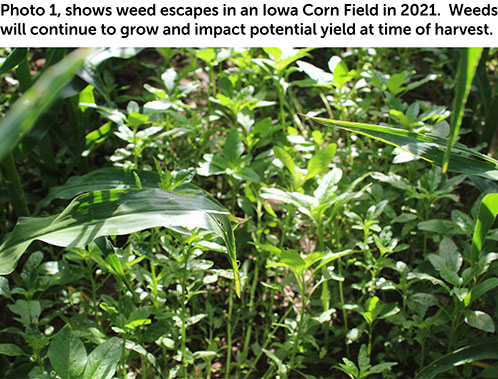Farmobile Coming Online In 2015
 A Leawood, KS-based start-up is endeavoring to commoditize farmers’ agronomic data — only with their explicit approval, of course — and its custom hardware-based, cloud-fortified data management system is nearing its inaugural U.S. release for the 2015 season.
A Leawood, KS-based start-up is endeavoring to commoditize farmers’ agronomic data — only with their explicit approval, of course — and its custom hardware-based, cloud-fortified data management system is nearing its inaugural U.S. release for the 2015 season.
The Farmobile system (Farmobile.com) originates with a $1,250 annual subscription fee, at which point the new subscriber receives a bright orange, hardened-plastic (Farmobile claims it’s nearly indestructible) Passive Uplink Connection, or PUC. The PUC plugs into any piece of farm equipment’s ISOBUS port and initiates real-time transfer of data such as machine diagnostics (speed, rpms, etc.) and location, crop moisture, yield and more, via mobile cellular network connection into what Farmobile terms a grower’s Electronic Farm Record (EFR). That EFR is housed on Farmobile’s cloud servers, and growers have absolute power to authorize or deny access.
CEO Jason Tatge says his team initially realized an opportunity existed to capitalize on the big equipment companies’ penchant for creating what he deems “closed” data collection and transfer solutions, or those that only work with one brand of equipment.
“Our goal is to reduce or eliminate as many points of friction as we can with farm data collection,” says Tatge during a phone interview from his mobile office as he jets off on yet another sales call. “MyJohnDeere works fine if every piece of equipment you are running is Deere — but a lot of growers aren’t running all Deere. A lot of times to get the data off of these machines, you have to be an expert in three to four different systems. As a company we like to say we want to be Apple-easy and Android-open.”
Farmobile has kept busy over the past 12 months on two fronts: Growers have been beta testing the system, and the Farmobile team has been immersed in R&D work on the PUC. With that now in his rearview mirror, Tatge can focus on getting the system in place throughout the Midwest.
“Once we have this in place for multiple seasons we’re going to be able to create a consistent set of data for our data customers where learning is accelerated by access to the data,” Tatge says.
By allowing the big equipment companies to dictate many of the parameters around data collection and storage, Tatge believes growers currently are overlooking the standalone value of their data.
“All of this data is being housed and basically locked up by single entities, and there’s disproportionate value coming back to the guy that owns that data — the farmer,” he says. “We want Farmobile to be a neutral place to establish the true value of the data.”
That notion brings about perhaps the most intriguing aspect of what Farmobile is looking to do — the company hopes to soon release a still-under-development set of tools for subscribers to market their data like a commodity.
“Twenty years ago, if you’d have talked about bottling water, most people would have looked at you like you’re nuts — and it’s not just bottling water, anybody can take a plastic bottle and put tap water in it and try to sell it,” says Tatge. “There’s a lot of infrastructure investment that went in ahead of time to creating that industry, and now the portability of that water has become a convenience item — it’s almost a $6 billion industry today.
“So you needed a way to get the water to who needed it, and you needed to be able to do it at scale so you had a consistent product, if you will. That’s really what we’re trying to do with ag data right now — standardize it and make it easily searchable for customers who want to purchase data.”
A Billion Dollar Bet
Tatge says questions around the actual, real-world value of agronomic data are somewhat short-sighted.
“Publicly issued statements from Deere say that they are going to go from a $25 billion to a $50 billion company in the next five to eight years, through the use of their Intelligent Solutions Group (ISG) — which is basically data,” he says. “That’s telling me they believe this market for collecting and using data is somewhere around $25 billion (in value). Currently, Deere isn’t paying anything for the data it gets off customers machines.”
Tatge foresees a future data customer contacting Farmobile and wanting to aggregate data from a certain county or region. In that region, the customer wants to purchase data on the who, what, when, and where — who planted what crops, when they planted, and where. The system then kicks back data records that fit those attributes, and then that data customer can place a value (similar to making an offer on a piece of property) on that data. Farmobile would then get in touch with all of the subscribers in that data set, explain who wants to purchase their data and for how much, and allow the subscriber 24 hours to decide whether or not to authorize the data-for-dollars exchange. If the subscriber never replies, nothing happens.
“We are betting on the fact that the market will determine the true value of the data, and as a buyer you’re going to have to make it valuable enough for the farmer to want to part with it,” says Tatge. “We’re trying to unlock that value for the grower. Another interesting part of all of this is data can be sold multiple times, unlike a commodity where you only sell it once.”






